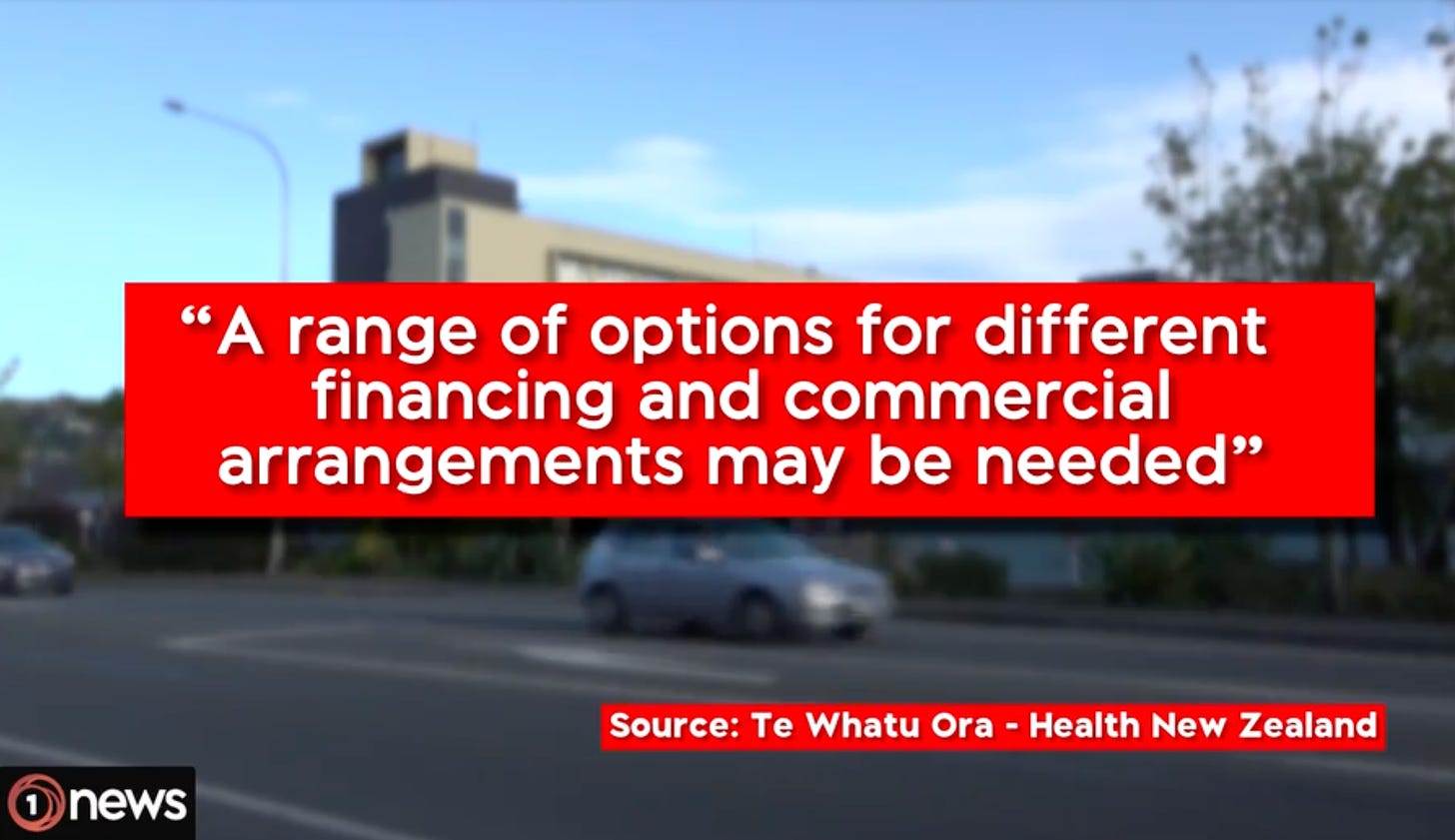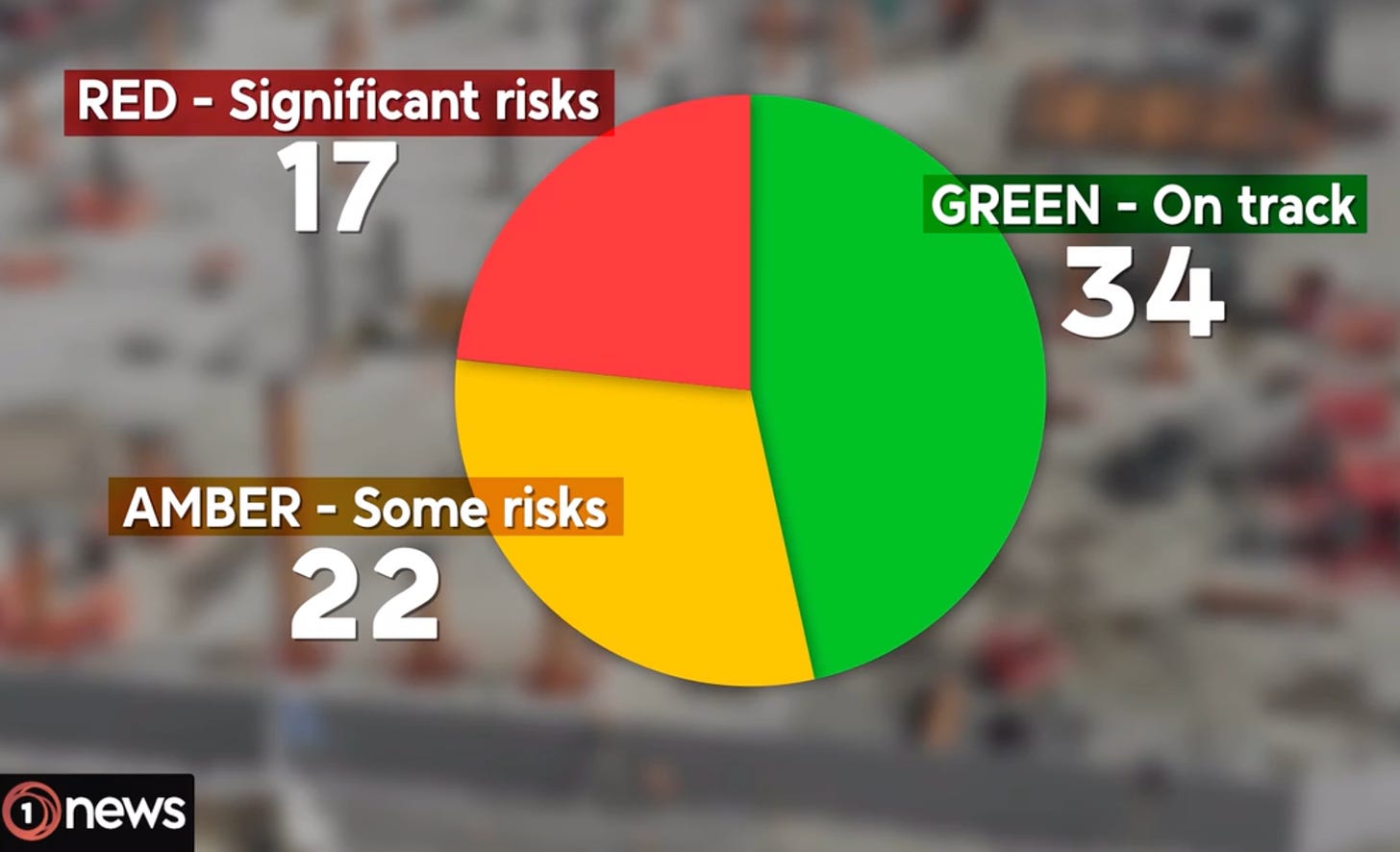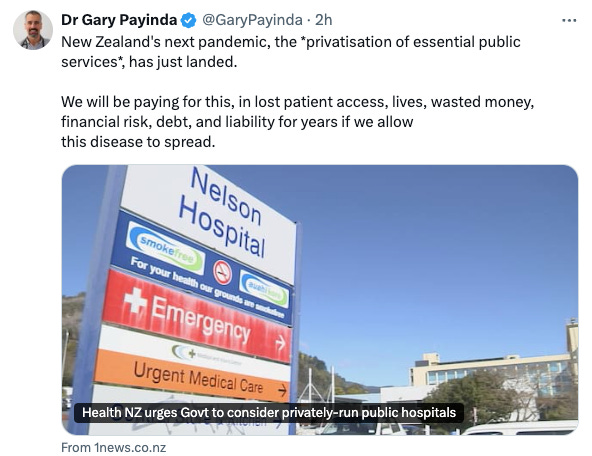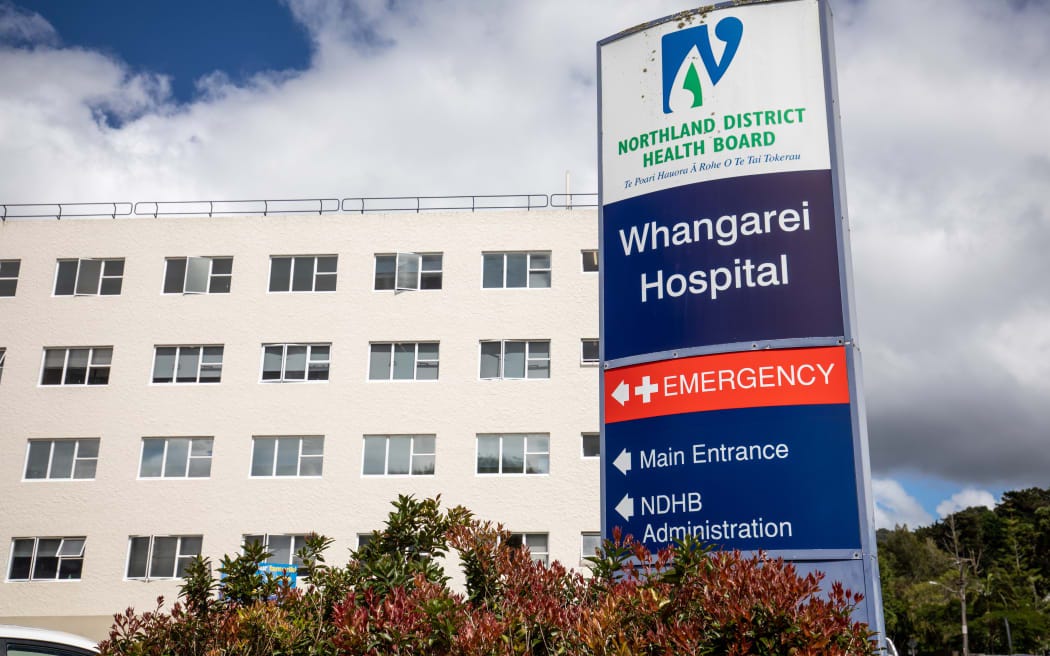Public Health Funding For Private Profit
Ask yourself this question, do you want to be rich?
UPDATE: This newsletter was previously paywalled but is now public and available to all. Thank you kindly to the paying subscribers of Nick’s Kōrero. 🙂
I've had enough of scheming and messing around with jerks
My car is parked outside, I'm afraid it doesn't work
I'm looking for a partner, someone who gets things fixed
Ask yourself this question, do you want to be rich?
I've got the brains, you've got the looks
Let's make lots of money
You've got the brawn, I've got the brains
Songwriters: Neil Tennant / Christopher Lowe
The neoliberal dream.
Failing public services, a frustrated population that loses confidence in the state's ability to deliver, and an acceptance that the private sector might need to help.
It’s what we lefties warn our children of as storm clouds gather. The money men are coming for Health, Education, Electricity, Water, and no doubt, at some point, the very air we breathe. Not to make things better but to deliver the lowest quality possible for the highest price achievable - ahh, don’t you love the smell of commerce in the morning?
But we’re just being paranoid, right? They wouldn’t really start selling off our Health System? It’s not only a dastardly thing to do, but it makes no economic sense.
The only thing the private sector can bring to the table is money. It can finance huge projects and spread the cost over time—for a fee. This is pretty appealing if you’re a government and you want to be seen to deliver without worrying too much about the long-term cost.
It’s like using a payday loan company to buy a major asset. It is immediately satisfying, no doubt. You get this thing you couldn’t really afford. But if you look closely, you’ll realise you’re paying an exorbitant amount of money for the privilege of spending now and paying later.
But here’s the thing - Governments have really good access to financing. They can borrow money at much lower rates than a private investor would consider an acceptable rate of return. It’s like having access to a low-interest revolving credit facility but choosing to slap everything on the credit card instead.
So, although I worried it was coming, I was still quite surprised last night when 1 News spoke of an organisation promoting the idea. Not some multi-national investment firm, not the government—but Health NZ? What the heck is going on?
According to the article, Health NZ suggests that the government consider allowing private companies to build, and potentially help run, our public hospitals. This is pretty bloody weird and suggests that they have lost confidence that essential infrastructure will be provided otherwise.
This is hardly surprising given that the article explained that more than a dozen large projects, besides the debacle in Dunedin, are currently classified as being at risk.
They interviewed Dr Gary Payinda, a Northland Emergency Doctor, who discussed how cramped for space they were in their existing facilities. The piece showed buildings from Whangarei to Nelson, across the motu, no longer fit for purpose, run down and in urgent need of replacement.
The report stated that earlier this year Health NZ had told the Minister that other options may be needed.
We’ve heard a lot from the Government telling the Public Sector to shut up, do their jobs, and not offer opinions. Including some high-profile dismissals where senior people have spoken out. It made me wonder where the heck Health NZ got off making such a proposal.
Raise concerns by all means, but proposing privatisation of our health infrastructure and services is surely beyond such limits. I imagine that if Health NZ weren’t saying exactly what the government wants to hear, there would be quite a clamour to shut these views down. As it happens, I’m sure this suits the coalition nicely.
Jeremy Holman, Chief Infrastructure and Investment Officer of Health NZ, suggests having the private sector build infrastructure and then having the government lease it from them, or entering into public/private partnerships. While I philosophically disagree with putting public health dollars into the pockets of private companies, I can see why he’s grasping for alternatives, given the state of these major projects.
If it weren’t so serious, I’d be amused that under the “Back on Track” government, fewer than half of these projects are “On Track.” It’s hard to say just how terminal some of these projects are as “many of the details of the red projects were redacted”.
Dr Payinda said, “There wasn’t any hardship quickly finding the money for tax cuts and benefits to landlords, but now there is a great deal of trouble affording healthcare infrastructure; that’s the irony.”
Fast-forward to this morning and TVNZ’s Breakfast programme was talking to former Health NZ chair Rob Campbell, who is no longer employed due to sharing sentiments similar to those of Dr Payinda, and former executive director of the Association of Salaried Medical Specialists, Ian Powell.
Presenter Daniel asked Mr Campbell if he was surprised by the approach. He replied:
“No, not at all. A couple of things, this is not new, and it’s not really about money, so let’s be clear about that. There is an army of consultants, investment bankers, and other people gathering together to try to get into investing, not just in health but in other public infrastructure for some years.
Before I joined Te Whānau Ora PWC was contracted in to do a study on whether there were people who would invest if they could make money with a government backing, and funnily enough, there were quite a lot of them.”
In Campbell's view, the current situation has been constructed quite deliberately, so it appears that this private investment is the best alternative—which he says it is not.
An uncomfortable-looking Daniel asked Mr Powell the same question: Was he surprised by this approach? He also was not surprised but said he thought it a very poor decision. He said if he were going to give it a rating from zero to ten, with ten being the highest, this would be somewhere in the range between zero and zero. So, not a big fan then.
Daniel looked puzzled. It did seem improbable that two highly intelligent people with a wealth of experience and knowledge were critiquing the government on TVNZ with no one providing counter spin. No wonder the presenter looked concerned.
Powell continued by saying that “the experience of these sort of arrangements is that profit extraction has a significant influence over the design, the construction, the range of services that can be provided and also the lifespan of public hospitals. It goes against the whole purpose of having a public hospital, which is to provide a comprehensive range of services that keeps up with developments over time and is built for the long term, not the short term.”
He continued by explaining that in order for this to work, for the private entity to be motivated to invest, there has to be a profit for them. He talked of the experience in the UK, where such partnerships have been operating for decades, and how it has led to larger debt and the need to rebuild earlier than should have been the case.
That’s what happens with modern capitalism; long-term investment runs counter to short-term profits and the large bonuses that are undoubtedly tied to them. This is why it is such a terrible model for delivering public services.
Mr Powell said that the only advantage comes from making the government’s balance sheet look better in the very short term.
If they were being honest, they would also reflect the liability that comes from operating in a way that maximises short-term profit. An unpleasant surprise, no doubt, for whoever the next lot in charge are.
Campbell said, “The real issue in New Zealand’s health system, in regard to property, is an inadequate level of planning, design, maintenance, and investment over a long period of years. And unless you change that around, simply bringing in new methods of financing, building, or even operating the health facility, is really pointless. You’re just going to cement the existing problems.”
The ex-chair was concerned that Health NZ was not prepared to negotiate with the professional people who operate on behalf of these profit-motivated parties.
He summed things up perfectly, saying you have to find the money either way. The difference is whether you pay it back on a government loan, which is cheaper, or to a private investor, which is more expensive.
To this, Mr Powell added that not only does it cost more to go down the private route, but patients also receive fewer services as a result.
So, a Lose/Lose situation.
We pay more for inferior infrastructure and receive less. The only winners are the investors, who receive a good rate of return, and the government, which can be seen to be doing something even if there will be legacy issues long after they’re gone.
Health will be a major issue at the next election. It is important to all of us, and we can all see that there are massive problems at present. I remain hopeful that for many Kiwis, privatisation of such a fundamental service will be a step too far. Yes, there is frustration, but I think many of us will be pretty cynical that adding a profit-making entity will make the sector more responsive or accountable.
I would say that if people don’t care about this, then they won’t care about anything, but as we saw in Dunedin this weekend, people do care - a lot.
We don’t want second-rate hospitals or public health dollars going into the coffers of investment companies.
I’d love to see the opposition parties utterly reject such a sell-off of our health system and make it clear that they will not stand by agreements that do not serve Aotearoa's public well when re-elected.
Nick's Kōrero is entirely funded by paid subscribers. If you can subscribe for $8 a month or $85 for a year, it would be very much appreciated. 🙂
That was all a bit grim; hope you enjoy the pop song at the end. Perhaps it will make you feel a bit better. Someone is going to make a lot of money, so that’s good—right?










As is usual now I'll open this up if it reaches 100 likes by this evening.
Fabulous comment Nick, and a very important issue! Yes we do care, we care a lot, as it is fundamental to our lives. Many times, I have been very grateful.
I have family in USA. Here a simple blood test may cost $60.00; over there several $100.. why? Because the investors/ private health companies are sandwiched between the giver and the receiver. Here in NZ, the glamour in the offices & promotional magazines of the HRT suppliers ( hormonal replacement therapy, privately run) is visible.
If anyone cannot see how this will cost us, the ordinary NZ er, they are daft!
We understand the infrastructure needs but we MUST fight to retain our NZ health system in our taxpayer hands.